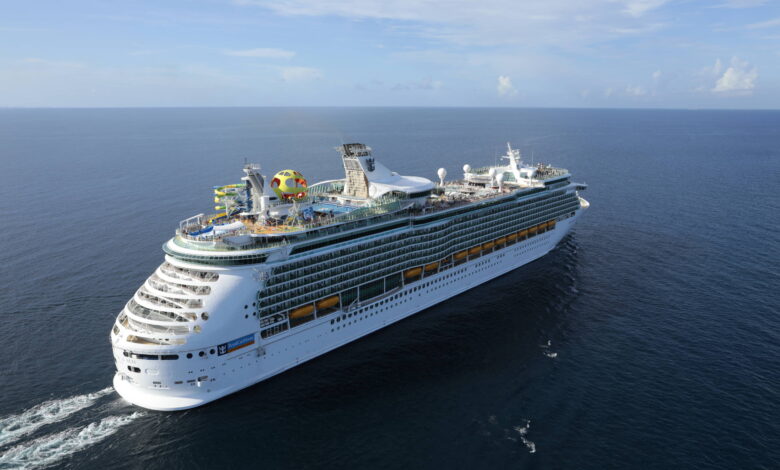13 things you should do before every cruise

Editor’s note: This is a recurring post, regularly updated with new information and offers.
You’ve booked your cruise. You’ve booked your flights. You’ve booked your pre- and post-cruise hotels. Now, it’s just a matter of counting the days until your on-the-water adventure begins, right?
Well, not quite.
There are many (mostly) little things you still need to do before you begin your journey to the pier to board your ship.
From downloading your cruise line’s app (if it has one) and using it to check in for your trip to signing up for ship-based activities in advance, here’s our handy checklist of 13 things everyone should do before leaving home for a cruise vacation.
For more cruise guides, news and reviews, sign up for TPG’s cruise newsletter.
Check in online
Yeah, I know: You were going to do this anyway. But, just in case you weren’t: Know that it pays off big time to check in online before your cruise.
There’s a lot of “paperwork” required to check in for a cruise, including (at many cruise lines) filling out documents asking for personal information such as your name, address, gender, date of birth, nationality and even pregnancy status; emergency contacts; and your pre- and post-cruise travel plans. You’ll also be asked to set up an onboard account and submit a photo of yourself.
If you do this all in advance online — and many lines now require that you do — you’ll be able to board your ship more quickly than if you wait to do it at the pier.
Sign up for our daily newsletter
Note that you can check in online for a cruise many weeks in advance in most cases. At Royal Caribbean, the check-in window opens a full 90 days in advance of a sailing. At Carnival Cruise Line, check-in opens 14 days before departure.
Related: 21 tips and tricks to make your cruise go smoothly
Check your identification documents
Long before you check in for your cruise, you should take a glance at whatever identification document you’re going to use during the check-in process to make sure it hasn’t expired — or is even close to expiring.
On many cruise itineraries, you will need a passport, and many countries that cruise lines visit require passports to be valid for at least six months beyond the date you plan to leave the country. Many countries also require at least two blank pages in your passport. If your passport is full with visa stamps, it’s time to get a new one, even if it hasn’t expired.
Download the cruise app
Many cruise lines now have apps you can download to your smartphone. The apps vary in capabilities, but many will show you a daily list of activities on your ship and everything you have reserved. Many also will let you make restaurant reservations and book shore excursions and other activities.
A few will let you order drinks and other items (think: pizza and beer) to be brought to wherever you happen to be standing. That’s pretty cool, right? The best part: The apps will work on board even if you don’t pay for a Wi-Fi package.
Some of the apps also will aid you with the check-in process. The Celebrity Cruises app, for instance, lets you check in for a cruise with relative ease. You’ll even be able to submit the security photo the cruise line requires using the Celebrity app. The app also will show your Celebrity Xpress boarding pass, so there’s no need to print one in advance of heading to the pier.
Related: The best cruise apps to streamline your vacation at sea
Print out your documents
In theory, you don’t need to print your cruise boarding pass if you have it on your mobile device. But I still always do – and I recommend you do the same.
I always keep a hard copy of every travel document — including pages that show my itinerary and reservation numbers for related hotel stays and flights — in my carry-on bag.
There are several reasons to do this. One is that you never know when your mobile device will die or have a connectivity issue that results in the document you need not being available. But you may also encounter authorities — an immigration official at a border, for instance — who will want to see hard copies of your itinerary before allowing you to proceed.
Notify your credit card company TK
If your cruise includes travel to a foreign country — and many do — it’s a good idea to let your credit card company know about the trip. It will make it less likely your credit card will be frozen for what the company suspects is a fraudulent charge.
The algorithms that credit card companies use to detect fraud are designed to flag unusual patterns of charges, and travel to a bunch of countries in rapid succession on a cruise ship can trigger just such a flag.
Just think how it must look to an algorithm when you charge items in Spain, France, Italy and Malta on four successive days of a Western Mediterranean cruise. The algorithm doesn’t know you’re cruising.
Related: The ultimate guide to picking a cruise line
Tell friends and family about your trip
It’s always a good idea to let at least a few people close to you know you’re leaving on a trip. Give them a rough outline of where you’re going and tell them how to contact you in an emergency. This may seem like obvious advice, but a reminder never hurts.
I have forgotten to do this at times — and while it’s never resulted in a crisis, it has gotten me in trouble with the family.
I found myself in the big-time doghouse in late 2020 with my 75-year-old, always-worries-when-I-travel mom after forgetting to tell her I was heading to Barbados at the last minute to report on the first Caribbean cruise after the COVID-19 crisis began. She only found out I was out of the country when one of her friends saw me on television talking about how I was stuck in my cabin on the ship due to an outbreak of the illness. You can imagine her reaction. Lesson learned.
Also: Call your mom.
Research ports in advance
There are some vacations — a beach trip, for instance — where you don’t have to do much research in advance. You just show up and figure out your days on the fly.
Most cruises aren’t that way — at least if you want to get the most out of them. At the heart of most cruises are port calls that, in many cases, are short, often just a few hours. You want to have a plan for what to do in these ports, or you’ll miss out on a big part of the cruising experience.
Once you know which ports you’ll be visiting, do as much research as you can. You can read TPG’s guides to the best excursions and activities in destinations like Alaska, the Caribbean and the Mediterranean.
Join a Facebook group for your cruise line
Another great place to get ideas for what to do in ports and on ships — and what to bring on a cruise, for that matter — are the many private Facebook groups dedicated to particular lines.
I belong to a number of them, including the Royal Caribbean Cruises group, the COPS (Cruisers Opinion Page) group and the Holland America Line Fans group. You’ll find thousands of cruise fans on these pages who often are only too willing to answer questions you might have about your upcoming trip. I’ve met some wonderful people in these groups, some of whom have become my longtime friends on Facebook.
Sign up for private tours in advance
Booking a shore excursion directly through your cruise line is easy. You check a box on an online form before sailing or while on board, and — poof — it’s all arranged. But booking tours through your line isn’t the only option, and it’s not always the best choice.
In many cases, you can save a lot of money — and get a better touring experience — by booking shore excursions in advance through independent tour operators in ports or a tour booking service such as Viator or ToursByLocals.
Often, independent tours will be more intimate than the tours offered directly through cruise lines. They might go to the same sites but in a small van instead of a big motorcoach. You might have six or eight other people on a tour with you instead of nearly 40. If your traveling group is big enough, you might even book a private tour just for your friends and family with an independent tour operator.
Related: The 9 best new cruise ships of 2023
Sign up for activities in advance
Some lines will let you sign up for shows, tours and other activities (including meals at specialty restaurants) before sailing using online portals. If you want to be sure you get a seat for a specific show on a specific night, or a specific tour or restaurant reservation time, it’s a good idea to do this. It’s common for popular shows, tours and restaurant reservation times to book up in advance.
If you don’t sign up for activities in advance, a back-up strategy is to do so just after you board a vessel – but I’m a big advocate for advance planning. You’ll find it particularly pays off when sailing on a giant ship, such as Royal Caribbean’s Wonder of the Seas, where there are thousands of other passengers competing for restaurant reservations and show tickets.
Related: 12 giant ships that are packed with fun features
Consider travel insurance
It’s not always smooth seas when it comes to cruising or any other sort of travel. We hate to bring it up, but you might need to cancel your cruise in advance due to the sudden onset of an illness. Or, perhaps, you need emergency medical attention during your sailing. Maybe the flight to your ship gets canceled, and you miss the vessel’s departure.
These sort of things can happen to cruisers, and they’re all situations where you might benefit from having travel insurance. Here’s a comparison of the top travel insurance providers and information about Cancel for Any Reason add-ons.
Related: The TPG guide to travel insurance for cruises
Pack wisely
For starters, pack early. And be strategic. Throw all the clothes you think you’ll need on the cruise in a pile, and then take away half of them. We promise, you won’t need them.
Most cruising these days is casual, and you only need a few outfits to rotate through a voyage. If things get dirty, no problem. Some ships have launderettes on cabin decks where you can run a load or two of laundry every few days. If not, you can send laundry out to be cleaned on board.
The extra cost of doing a few loads of laundry on a ship is a small price to pay for the freedom of not having to lug a giant suitcase around as you travel to and from your ship. Plus, you’ll want to save room in your suitcase for all the little treasures you’ll find along the way.
Related: Everything you need to know about cruise ship laundry service
In addition to packing light, pack anything you think you might need for the first few hours of your cruise in your carry-on bag. This means things like medication and a phone charger, but also a bathing suit, hat, sunscreen and other items that’ll let you head straight to the pool deck to start the fun. A porter will likely take away your main bag as you arrive at the port, and you might not see it delivered to your cabin for several hours.
Put your phone in airplane mode
Some of the biggest cruise ship horror stories online are tales of cruising newbies who racked up thousands of dollars in cellphone charges while on ships.
This can happen when you leave your phone turned on and, say, watch videos on the internet. Many phone plans — even international plans — do not include talking, texting and data on cruise ships, and you’ll pay exorbitant roaming rates for such services that’ll show up weeks later on your phone bill.
There are ways to make calls and access the internet from ships without spending a boatload of money. You can buy a Wi-Fi package, for instance, that’ll let you make FaceTime calls and stream videos (on some ships) by Wi-Fi without using phone data. Some phone companies also have cruise-specific plans you can buy in advance of a voyage.
Personally, I never go that route. I keep it simple. I just put my phone in airplane mode the moment I step on board a ship and never switch it back on. I then turn on the phone’s Wi-Fi, buy a Wi-Fi package and do all my calling, texting and internet surfing over the internet. That way, there’s no chance I’ll be surprised by an unexpected phone charge.
Get ready to unplug from work
Really, this should go without saying. But you are heading on vacation. Google that word (and scroll down past the entries for the Ed Helms and Chevy Chase movies to the Wikipedia entry).
This trip is going to be all about taking a break from work, not spending hours every day dealing with the latest crisis back at the office — or, at least, it should be.
In the days leading up to your trip, make sure you wrap up any pressing work projects, let your coworkers know you’ll be offline, reply to any outstanding emails and — most importantly — turn on your out-of-office message.
Trust us: You’ll be so much happier.
Planning a cruise? Start with these stories:




